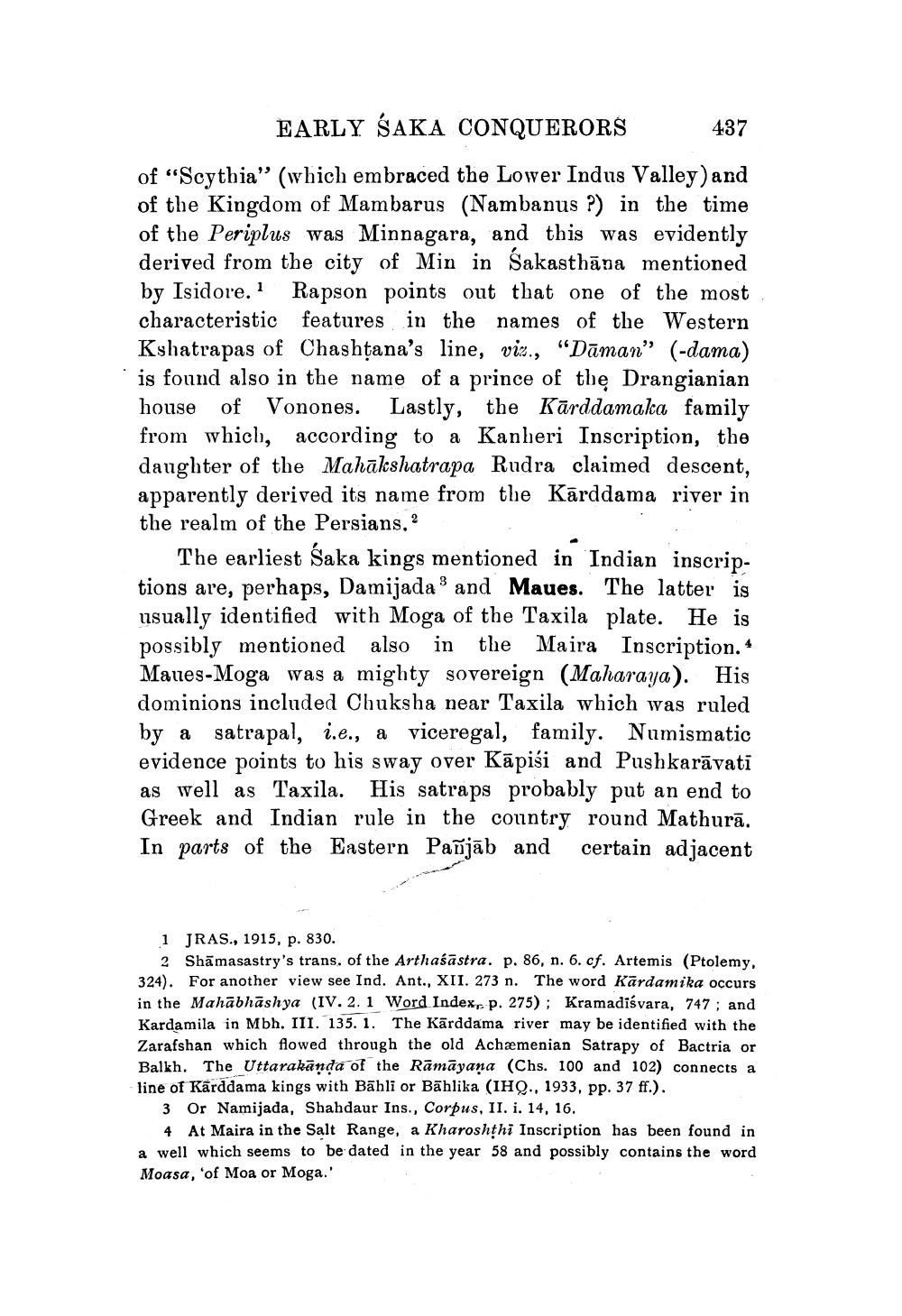________________
EARLY SAKA CONQUERORS
437
of "Scythia" (which embraced the Lower Indus Valley) and of the Kingdom of Mambarus (Nambanus ?) in the time of the Periplus was Minnagara, and this was evidently derived from the city of Min in Śakasthāna mentioned by Isidore. 1 Rapson points out that one of the most characteristic features in the names of the Western Kshatrapas of Chashṭana's line, viz., "Dāman" (-dama) is found also in the name of a prince of the Drangianian house of Vonones. Lastly, the Karddamaka family from which, according to a Kanheri Inscription, the daughter of the Mahakshatrapa Rudra claimed descent, apparently derived its name from the Karddama river in the realm of the Persians."
3
The earliest Saka kings mentioned in Indian inscriptions are, perhaps, Damijada and Maues. The latter is usually identified with Moga of the Taxila plate. He is possibly mentioned also in the Maira Inscription. * Maues-Moga was a mighty sovereign (Maharaya). His dominions included Chuksha near Taxila which was ruled by a satrapal, i.e., a viceregal, family. Numismatic evidence points to his sway over Kapisi and Pushkarāvati as well as Taxila. His satraps probably put an end to Greek and Indian rule in the country round Mathura. In parts of the Eastern Pañjāb and certain adjacent
1 JRAS., 1915, p. 830.
2 Shamasastry's trans. of the Arthaśāstra. p. 86, n. 6. cf. Artemis (Ptolemy, 324). For another view see Ind. Ant., XII. 273 n. The word Kardamika occurs in the Mahabhashya (IV. 2. 1 Word Index, p. 275); Kramadiśvara, 747; and Kardamila in Mbh. III. 135. 1. The Karddama river may be identified with the Zarafshan which flowed through the old Achæmenian Satrapy of Bactria or Balkh. The Uttarakanda of the Ramayana (Chs. 100 and 102) connects a line of Karddama kings with Bahli or Bählika (IHQ., 1933, pp. 37 ff.).
3 Or Namijada, Shahdaur Ins., Corpus, II. i. 14, 16.
4 At Maira in the Salt Range, a Kharoshṭhi Inscription has been found in a well which seems to be dated in the year 58 and possibly contains the word Moasa, 'of Moa or Moga.'




